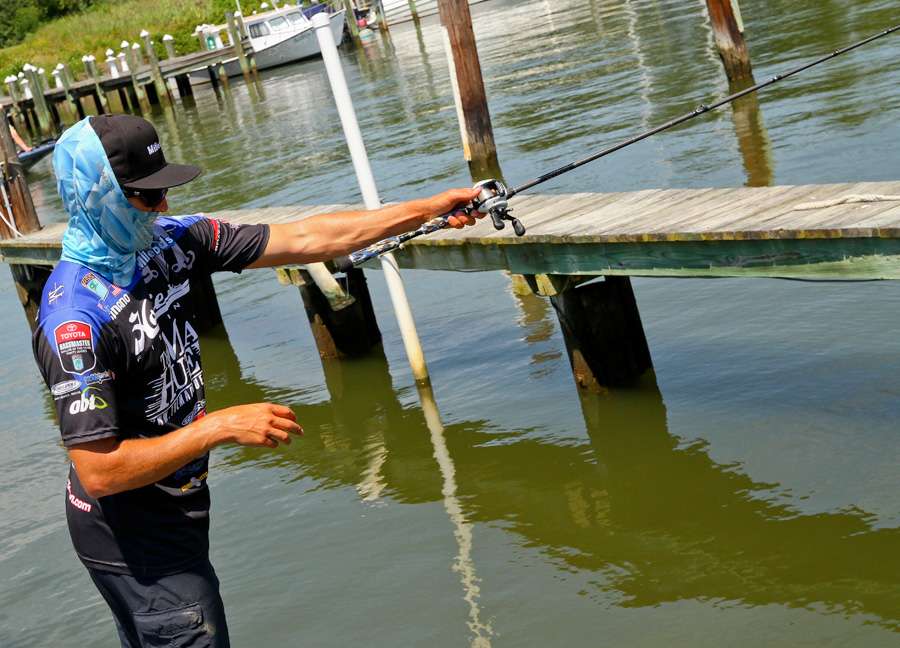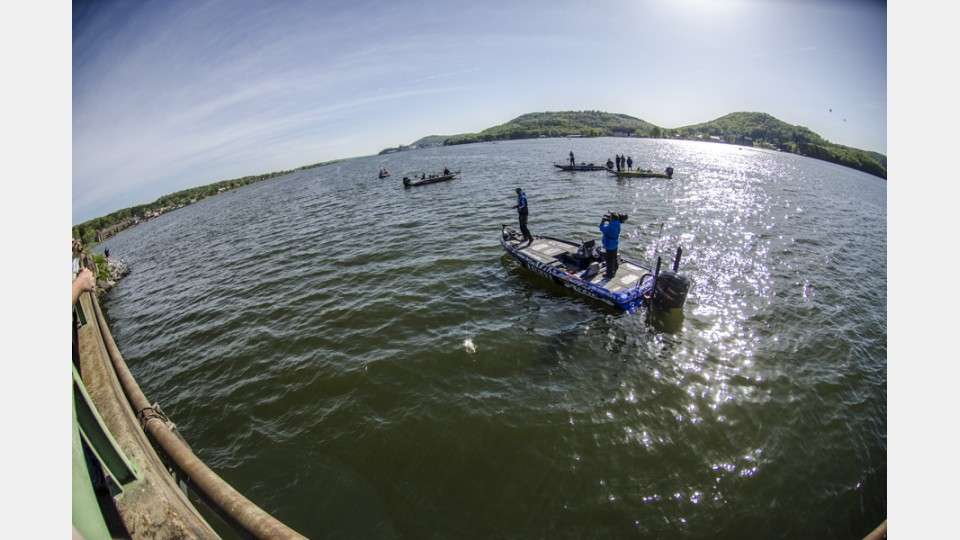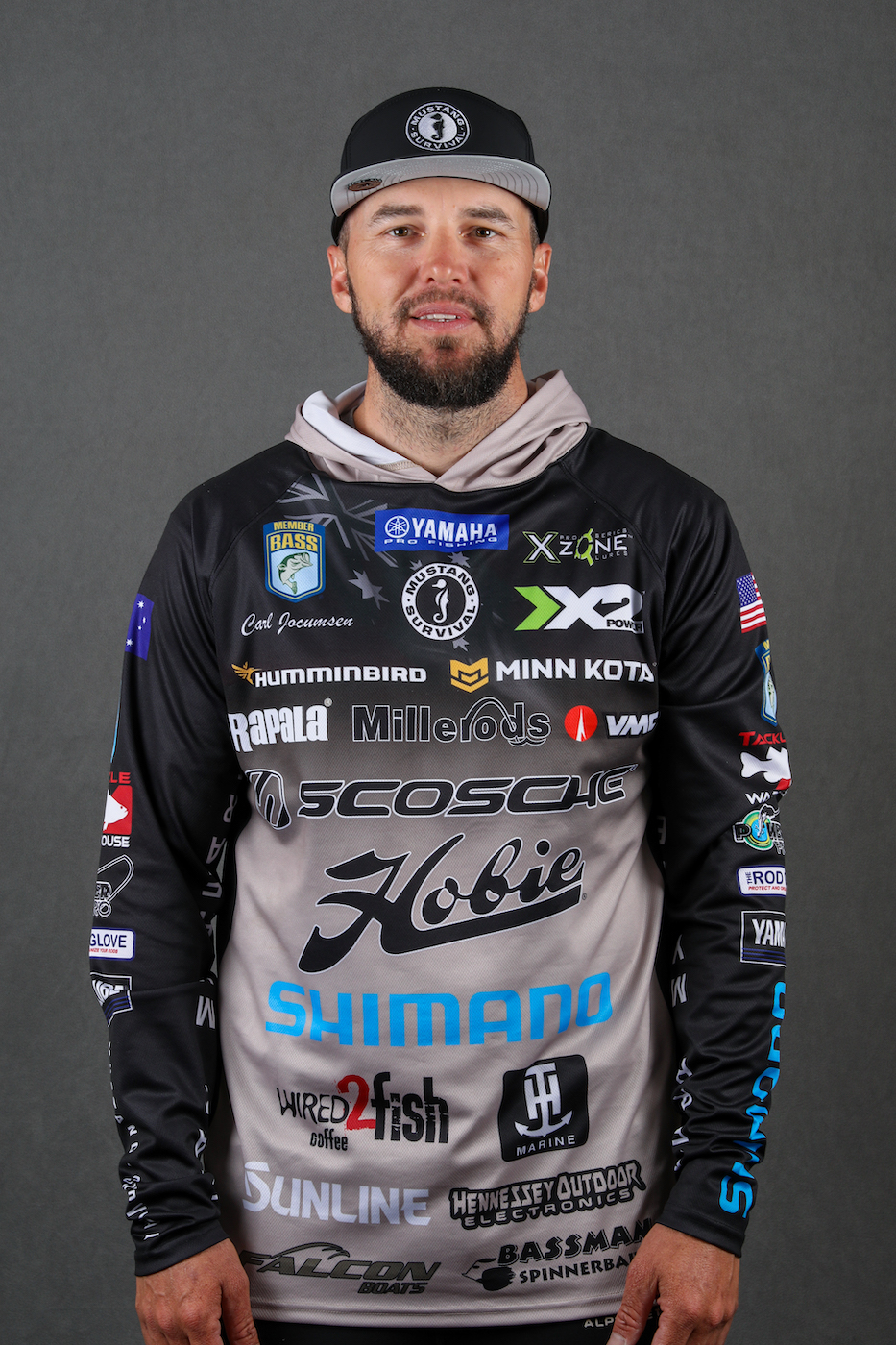
Things were going well early in the season when I earned three consecutive checks at Winyah Bay, Norfork/Bull Shoals and Wheeler, but after that my season took a distinct dive. I’ve been struggling ever since. It’s frustrating, but I’m keeping my head up and trying to fix this slump before the year is over.
As I’ve analyzed what went wrong, I think that a lot of it can be attributed to struggles with time management. I’ve always prided myself on having a solid game plan and doing as much research as possible. At the same time, I’ve made it a point to spend every possible minute, from daylight to dark, on the water on every practice day.
Earlier in the season when the days were shorter it was easy to manage all of my obligations. I’d fish, do some Internet study, work on my tackle and then get a good night’s sleep. By this time of year, however, daylight to dark can mean 16 hours. I’m often up at 3:30 and not off the water until 9. By the time I fuel up, charge my batteries and get something to eat, it’s usually 11 p.m. Only after thinking about it do I realize that this strategy is not as smart as I thought it was. Those long days can actually hurt you.
I’m sure that some guys can run for weeks at a time on just four hours of sleep, but eventually it catches up with everyone, and if you’re not running at 100 percent on tournament day there’s no way to be competitive. Going forward, I’m going to try to practice a lot smarter, not just harder.
The other factor that has caught up with me this year is that my three days of practice have often had no bearing on how the tournament actually went. For example, at Toledo Bend the wind blew out of the North for three straight days during practice and then it was flat calm during the tournament. Those kinds of changes are my absolute nightmare. It’s not coincidental that the tournaments I’ve done well in are those where the conditions have stayed the same throughout the event. I’m not embarrassed to say that at this point in my career it still takes me longer to figure things out or adjust than it does for many of my peers. That’s why I’ll often have one good day and one bad day.
While the second half struggles have been frustrating, I still feel like it has been a better season than last year. I led an event for a day, and I earned three checks in a row. The coolest thing about what we do is that one day, one hour or even one cast can be life-changing. If I were to win this next Elite Series or an Open, all of the struggles will be forgotten.
Next up is the upper Mississippi River in La Crosse, Wis. I’ve been there a few times, including last year at about this same time before I went back to Australia. The water level and conditions may be different, but it’s a place where I feel comfortable. I’m going to try to learn from some of my better finishes as I practice there. Typically when I’ve done well in tournaments I haven’t found much in practice. Instead, I’ve found a piece of the puzzle and then I’ve focused all of my attention on one little deal, picking it apart and learning it all. This year, on the other hand, it seems like every tournament I’ve found areas where another angler made a Top 20, Top 12, or even won, but I found so much that I moved through it too quickly.
For example, at the Potomac, I found the grass bed where Jason Christie caught his big bag the final day. In fact, in one of the earlier rounds I caught a 5-8 fishing right behind him with a frog, exactly the way that he caught his fish. I caught two nice ones there, but I had other stuff to visit so I made exactly one pass and left. I didn’t force myself to settle down, and that’s what these guys do when they’re successful. They get in a good area, stay there and figure it out.

As I said above, I still have two tournaments left to turn a disappointing year into a good year. No matter how much I get beat down, my goal is to stay positive. I want to build on my successes, learn from my struggles and put the entire puzzle together.

